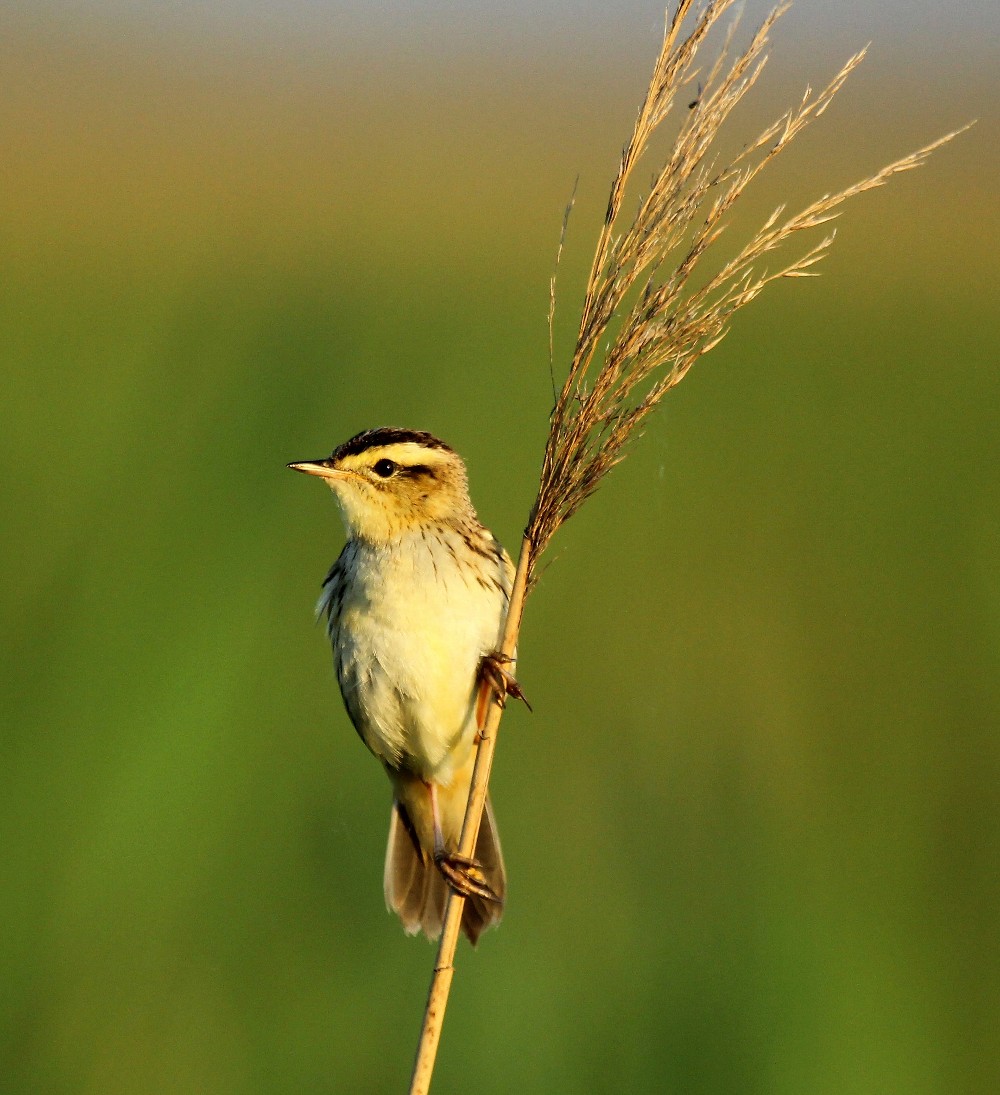Coal mining poses new threat to Aquatic Warbler
A fresh threat to breeding Aquatic Warblers has emerged in Poland's Polesie National Park.
Aquatic Warbler, which is categorised as Vulnerable on the IUCN Red List, is particularly affected by hydrological changes, including to wetland habitats. The species' global population decreased by more than 90 per cent during the 20th century, and there are currently only 10,200-13,800 singing males breeding in an area of 600 square miles. Now, potential coal mining within a few miles of Bubnów Marsh in Polesie National Park, is putting the species under further threat.
Bubnów Marsh, close to the Polish-Ukrainian-Belarus border, is one of the largest calcareous fen mires in Europe. It is a significant wetland area that survived drainage during the communist era. The marsh is protected by the Ramsar Convention on Wetlands, is an Important Bird and Biodiversity Area, a Cross-border Biosphere Reserve (Polesie Zachodnie) and a Natura 2000 area. In 2014, 389 singing male Aquatic Warblers were found at the marsh, representing between 3 and 4 per cent of the global population.

Aquatic Warbler, Poland (Trevor Marshall).
The Chief Geologist in Poland has approved a concession for a company that is planning construction of a coal mine near the marsh. In May 2017, during proceedings of the scientific council of Polesie NP, a representative of the company that carried out the exploratory drilling presented the prospects for future coal mining in the vicinity of the marsh. The company plans to dig for coal for approximately 10 years, with local councils and government representatives involved in lobbying in favour of construction of the new mine.
Conservationists have suggested that ecotourism could be a viable alternative source of income in the local area. The National Park was visited by some 44,000 tourists in 2016, and Urszulin Commune, which includes the park, receives grants from the European Union for the promotion and development of tourist infrastructure. They have pointed out that coal mining will have a negative impact on this valuable wetland ecosystem, potentially resulting in the loss of habitats and rare species, including Aquatic Warbler. Mining could also result in the reduction of tourism and a loss of income that would help improve the development of tourism and recreation.
To read the International Species Action Plan for Aquatic Warbler, prepared by BirdLife International, click here, or for more information on the species, click here.

